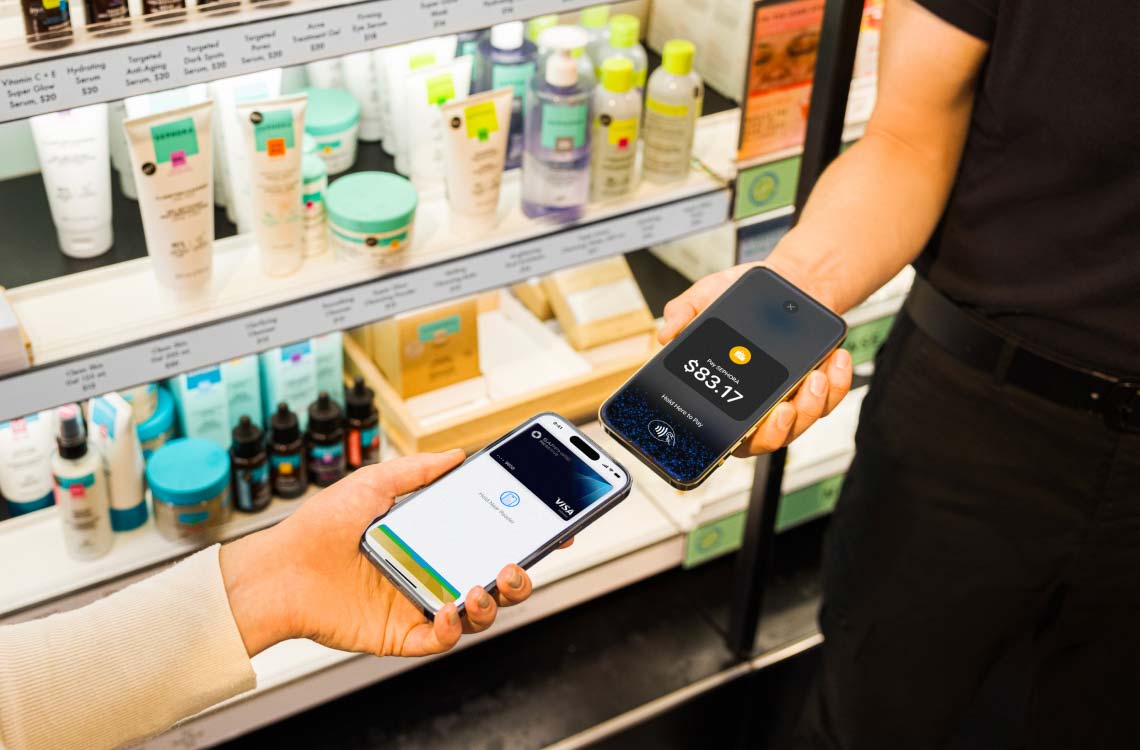Elevate the payments experience you deliver...
The future of commerce is the future of payments. Simply stated, few things have a deeper impact on every aspect of your business.
And whether that business is in consumer goods, retail, apparel and luxury, restaurants and food services, or agriculture, we can provide customized, end-to-end solutions that make customers' experiences faster, easier and more secure across channels.

on your customers and your business?
Stefan Jensen
Vice President, Treasurer, Sephora
Josh Janos
VP, Marketplace, Macy’s, Inc.
Nancy Romain
Treasury Team Leader at Domino’s Pizza
with these 5 major trends
Accept contactless payments with Tap to Pay on iPhone
Now you can accept in-person, contactless payments right on your iPhone—no extra card readers or hardware needed4.
Read the latest
Discover biometrics, the new face of payments
See how biometrics payments can fuel the speed and efficiency of the checkout experience.
Future capabilities of biometrics are under development; features and timelines are subject to change at the bank’s sole discretion.
See what’s new3 billion users
Simplify commerce with omnichannel payments
Build a top-notch, end-to-end payments journey across shopping, purchasing, delivery and returns.
Start your journeySee tomorrow’s opportunities today with biometrics personalized commerce
Look into the future of payments, as personalized commerce unlocks new insights, experiences and business opportunities.
Learn moreTap into the social commerce explosion
Explore the rapidly growing branch of e-commerce that uses social networks and digital media to power transactions.
LEARN MORELook to our full offering of solutions to help grow your revenue.
Contact Sales
Get in touch with an experienced J.P. Morgan representative to learn more.
For customer service inquiries, existing Merchant Services clients may contact 1-888-886-8869 or email merchant.priority.support@chase.com.
2 McKinsey 2020
3 PBOC publication, U.S. Bureau of Economic Analysis publication, European Commission reports, Trading Economics Estimates; NielsonIQ - 2023 Retail Landscape
4 Tap to Pay on iPhone requires the latest version of iOS. Update to the latest version by going to Settings › General › Software Update. Tap Download and Install. Some contactless cards may not be accepted. The Contactless Symbol is a trademark owned by and used with permission of EMVCo, LLC. Tap to Pay on iPhone is not available in all markets. View Tap to Pay countries and regions. For more details, see https://developer.apple.com/tap-to-pay/.
Apple and the Apple logo are trademarks of Apple Inc., registered in the U.S. and other countries. App Store is a service mark of Apple Inc.
5 Goode Intelligence

















